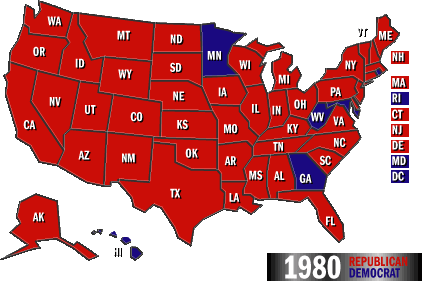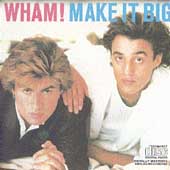
Last night I was at the Last Feminista's watching a Nicole Holofcener movie, "Walking and Talking," which naturally got us to talking. And LF, who's just five or so years my senior, was talking about the relative merits of being born a few decades earlier or a few decades later. So afterward I was curious about this and sent him an e-mail that said, "Do you think you were born in the right generation?"
This is his reply:
Any formal training of the mind is bound to leave long lasting traces — scars, if you wish. So I'm sure you, KC, could readily find a legalistic evasion to many a question. In my case, the temptation is to deploy a bit of analytic-philosophy boilerplate and reply that the question is meaningless because I couldn’t have been born into any other generation and still be me.

For instance, surely it is a small but irreducible part of who I’ve become that I had a “Disco Sucks” sticker on my high school locker? But I bailed out of that concept-parsing career [philosophy] to avoid drowning in stupendously uninspired professional writing. So let’s toss that cheap dodge.
I would say that I’ve been perplexed and disappointed by my contemporaries. But, hey, I was set up. Here’s the lowdown:
My formative environment was Hegelian. Not that any of the responsible parties had read old Georg; if you told them that Hegel was the second-string running back for the 49ers, most of them would have just nodded politely and asked if I liked football.

It wasn’t informed, but they all had a thorough commitment to the dialectic of Progress. And I seem to remember that all of them walked around with smug grins because Progress had done smashingly well of late, and Middle America was on top of the game. There had been some tough scrimmage of late, but the play came out well: Civil rights was a success, the woman’s movement was soon to duplicate it, followed closely by the gays. (I don’t think that last bit was in our textbooks though.) And that all-important left tackle on the Progress team —Reason — was having a great game as well. The fraudulent Nixon Administration had been hounded out of Washington, and the national magazines were running articles on how religion was past its ascendancy and the churches here would soon be as empty as those in Europe, pressed into service just for the stray wedding or funeral. (This bit might not have been in the textbooks either.)
And on the international side, the nation was coming to terms with the fact that you can’t succeed in carpet-bombing ardent nationalists into submission, particularly when you misunderstand them to be some sort of geo-strategic agents. Besides the great enemy that supposedly justified killing all those Vietnamese, the Soviet Union was, to those who bothered to look, clearly moldering its way into irrelevance.

So Progress was moving the ball and running up the score. Of course, there was the energy crisis, and the Japanese were wiping out all the U.S. car and steel plants with their better and cheaper goods. But that just meant our defense had to be Science. With the waning of the Cold War, we could melt down the military dinosaur and dive into the technologies of the future that would let us kick Asian butt. We learned the metric system in the early ’70s because the whole country was sure to be using it by the time we got to college.
And of course Progress would always mean Liberty, too. Civil rights and the related campaigns were assaults on institutionalized bigotry. We were going to be free of all that. The sexual revolution had kicked out the mores of a bunch of religious prudes. The signs of all this at my high school were promising. If you kept up pretty good grades and took a college bound curriculum, then you were on a program that let you come and go as you wanted. Smoking wasn’t allowed in the building; you had to step outside. (I would stand at the door and laugh at the kids who were freezing their asses off trying to look cool as they puffed away in February.) And while it might not have been on the books, the rule was that if you were smoking dope you had to act like you weren’t, but still get it stubbed out in time that any passing adults could pretend they didn’t smell it. Kind of an early don’t-ask-don’t-tell. It wasn’t all ideal: In a bit of rather bad timing, at the very end of the ’70s, the school nurse or somebody told a whole auditorium of us kids that while some of the sexually transmitted diseases were indeed unpleasant, none of them would kill us.
So there we were poised for what great things? Isn’t it some sort of hormonal imperative that youth must rebel against the oppressions of their elders? That’s where our Hegelian game had to go, right? Then why the hell in 1980 did so many of my generation vote for Reagan?

And do it again four years later? Hadn’t we figured out that voodoo was no way to run a country? Here comes this reactionary who panders to the religious bigots and is idolized by those who cannot master the principles of basic accounting, and has the presumption to call the Soviets “The Evil Empire” when “The Rusting Regime” would have been more descriptive. Sure that senile old guard had chosen as its swan song to invade and try to occupy Afghanistan. But what kind of threat is a military where the grunts get more calories from vodka than from food? It is all fine and well that Reagan looked and talked better than your real Granddad. But that’s no reason to believe a B-movie actor with an unsteady grasp on reality.
Well maybe Progress is just a scam after all, but why be so quick to become a sellout? When university administrators started talking about reviving the principle of “in loco parentis,” lots of students thought it was a good idea. Or try the “War on Drugs.”

My generation had been smoking plenty of pot for a decade and we were all pretty well convinced by the experience that it doesn’t do much harm beyond causing some serious munchies. Everybody figured it would be legal in a few years anyway. Then a bunch of propagandists came along with a plan to lock up millions of harmless people, and the reaction was to go pee in a cup for the employer.
But besides all that, why did my generation seem to truly enjoy listening to such bad music?

Maybe it wasn’t the whole generation that was set up; maybe it was just where I happened to be. For one thing, there were no religious nuts on my block. For another, the whole progress-of-the-decades thing might have been particularly easy in our homogeneous suburb. Civil rights was dandy when we had exactly one token black in our school. And the parents could all have faith in the real estates agent’s red lining. The smug grins would disappear fast if you mentioned the possibility of busing.
But perhaps I would rather have been part of an earlier generation that really was sold a grand vision of progress before being kicked in the teeth and hard.

If so, do you get to pick your part? Isaac Asimov once told of a woman who was captivated by the idea of living back when there were household servants to do everything. So he asked her if she was eager to be a cook or a chambermaid? In my own case then, maybe I could be sitting in some quaint dive on the Left Bank in 1929 drinking cheap and bad wine because I didn’t write “The Sun Also Rises” or “The Bridge of San Luis Rey,” and didn’t get that invitation from Gertrude Stein. But at least I would have liked the jazz.

 For centuries they just traipsed around the globe pillaging (the raping they left to the Spaniards) treasures and foodstuffs and culture and know-how from their many colonies. So you end up with this tiny little island in the North Atlantic that has a "Best of Everything on Earth" collection that no one else can rival. Pungent cheeses and creamy soaps and malty ales and milky toffee and fragrant teas and spicy chutney and tart marmalades and clotted cream and Portmeirion porcelain, for heaven's sake.
For centuries they just traipsed around the globe pillaging (the raping they left to the Spaniards) treasures and foodstuffs and culture and know-how from their many colonies. So you end up with this tiny little island in the North Atlantic that has a "Best of Everything on Earth" collection that no one else can rival. Pungent cheeses and creamy soaps and malty ales and milky toffee and fragrant teas and spicy chutney and tart marmalades and clotted cream and Portmeirion porcelain, for heaven's sake.
 I wanted an old MG. But my lust has mellowed. British accents tend to annoy me. British humor often fails to amuse me. Obsessions with the royal family, so tediously common, strike me as banal.
I wanted an old MG. But my lust has mellowed. British accents tend to annoy me. British humor often fails to amuse me. Obsessions with the royal family, so tediously common, strike me as banal. 
















